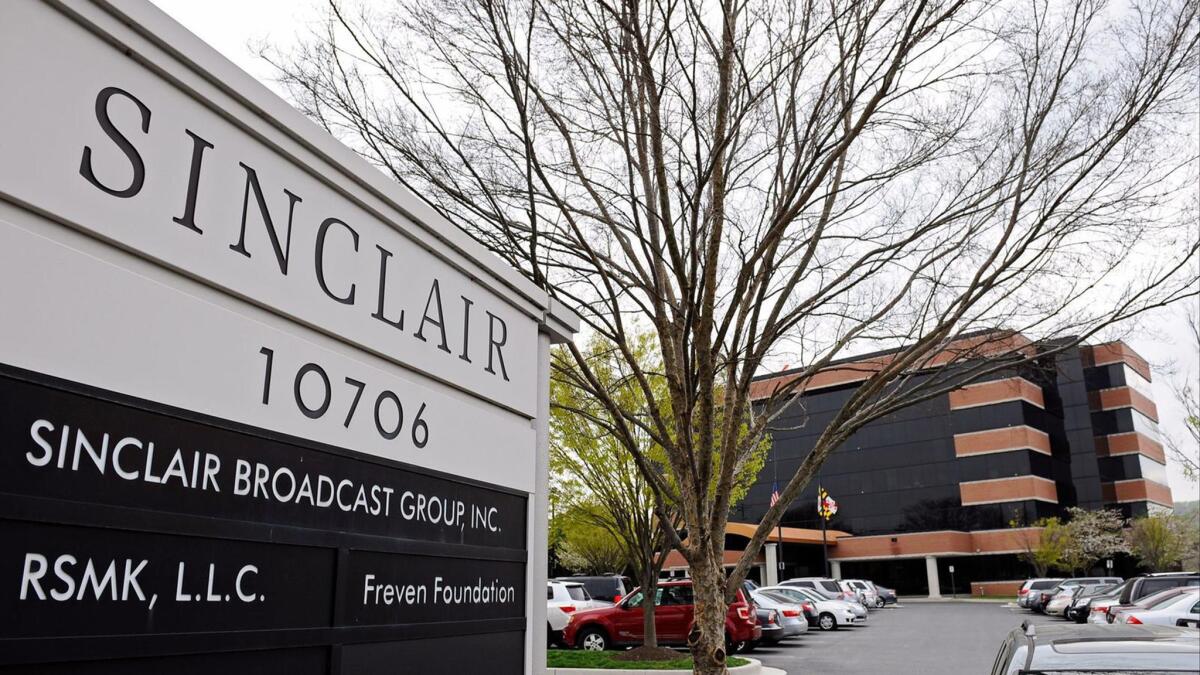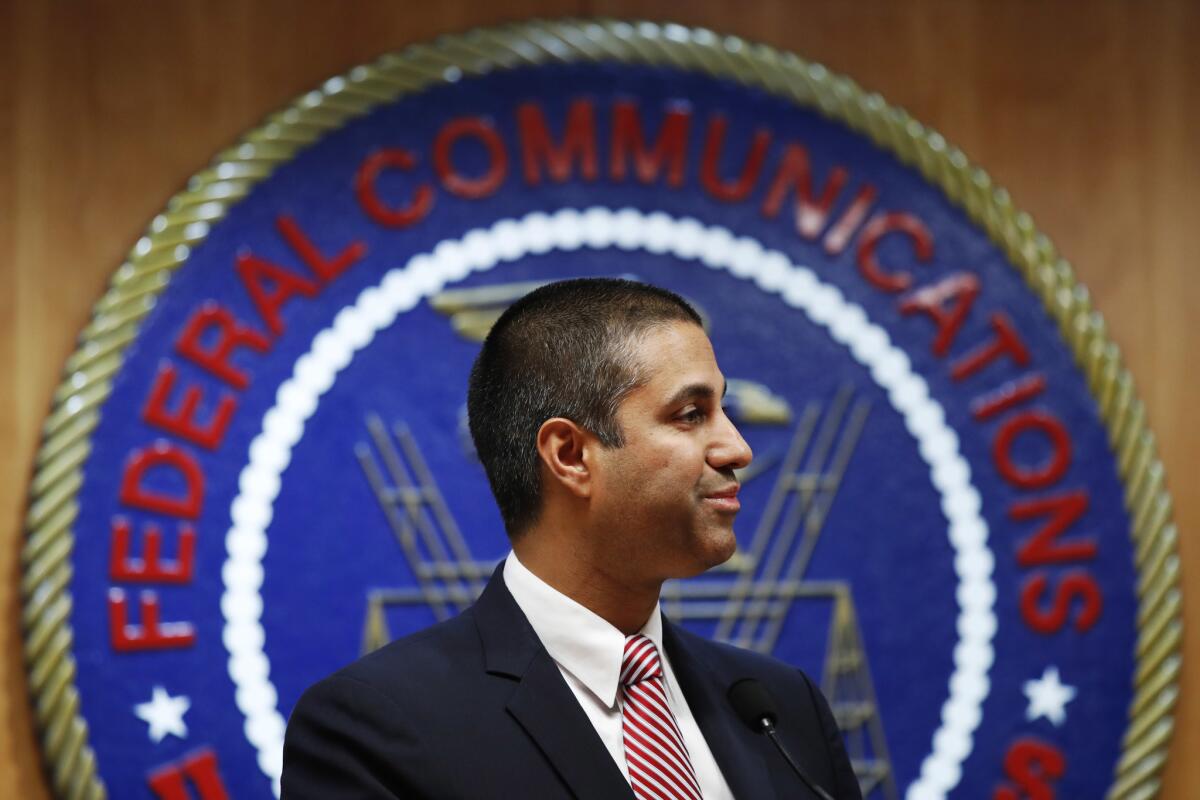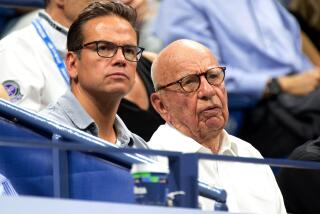FCC slaps Sinclair Broadcast with a record $48-million fine for âunacceptableâ conduct

The FCC has fined Sinclair Broadcast Group, with headquarters outside Baltimore, $48 million.
The Federal Communications Commission has fined Sinclair Broadcast Group $48 million â the largest financial penalty in the FCCâs 86-year history â as part of an agreement to resolve several investigations into the companyâs alleged practices.
In addition to paying the record fine, the Maryland TV station group also agreed to adhere to âa strict compliance plan.â In exchange, the government will halt three investigations into Sinclairâs practices.
One of the investigations was seeking to determine whether Sinclair negotiated âin good faithâ with pay-TV providers. Another looked at Sinclairâs âfailureâ to properly disclose to viewers the sponsor of some of its programming.
In 2017, the FCC criticized Sinclair for running promotions that appeared within its newscasts without any disclaimers. The agency levied a $13.4-million fine against Sinclair that year for failing to identify sponsored content that aired on its TV stations. That fine was included in the new settlement.
The fine imposed on Sinclair on Wednesday was double the amount paid by Univision Communicationsâ in 2007 to resolve a complaint about running childrenâs soap operas instead of educational programming.
FCC Chairman Ajit Pai said Wednesday that he would not recommend that Sinclairâs television station licenses be revoked, a measure promoted by some of Sinclairâs political rivals. Such a move would have been devastating.
The union representing sports broadcast technicians is launching ads on cable TV as it ratchets up a fight with regional sports network owner Sinclair.
Sinclairâs business arrangements drew scrutiny during its 2017-18 takeover attempt of Tribune Media, a once prominent TV station group that included KTLA-TV Channel 5 in Los Angeles and WGN-TV in Chicago. President Trump supported the deal, but the FCC told Sinclair that it would need to divest certain properties, as a condition to win approval.
Sinclair then fashioned arrangements to get around limits on how many TV stations a single company can own.
Sinclair had proposed transferring WGN to a limited partnership but still maintain control over the stationâs operations. Sinclair also said it would sell the Tribune stations in Dallas and Houston to another company, but that buyer had preexisting business ties to Sinclair.

The FCC balked at the arrangements, saying Sinclair did not âfully disclose factsâ about the planned sales of three TV stations. That proposed merger collapsed when Tribune Media sued Sinclair for $1 billion. The Tribune TV stations have since been sold to Nexstar Media.
âSinclairâs conduct during its attempt to merge with Tribune was completely unacceptable,â Pai said Wednesday in a statement. âTodayâs penalty, along with the failure of the Sinclair/Tribune transaction, should serve as a cautionary tale to other licensees seeking commission approval of a transaction in the future.â
In a statement, Chris Ripley, chief executive of Sinclair Broadcast Group, said the company is âpleased with the resolution announced today by the FCC and to be moving forward. We thank the FCC staff for their diligence in reaching this resolution. Sinclair is committed to continue to interact constructively with all of its regulators to ensure full compliance with applicable laws, rules and regulations.â
This year, Sinclair and Nexstar (which took over the litigation from Tribune) settled the 2018 lawsuit. Sinclair agreed to pay Nexstar $60 million and turn over its TV station in Lexington, Ky.
An FCC spokesman said Wednesday a copy of the consent decree with Sinclair would not be immediately available.
Nexstar declined to comment.
The Los Angeles Times and the Tribune TV stations were part of the same company until 2014.
More to Read
Inside the business of entertainment
The Wide Shot brings you news, analysis and insights on everything from streaming wars to production â and what it all means for the future.
You may occasionally receive promotional content from the Los Angeles Times.












